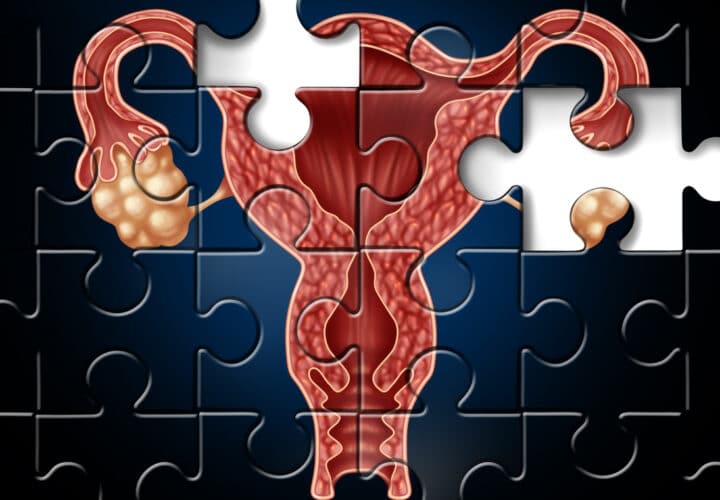Researchers examine the effects of estrogen on the brain. Their findings could shed light on the disproportionately high risk Alzheimer's risk of women versus men.
Alzheimer’s disease is more prevalent among women than men: Two-thirds of the 5.5 million people in the U.S. living with the disease are women.
This may be partly due to the fact that women, on average, live longer than men. Growing older is a significant risk factor for Alzheimer’s after all. But that’s not the only factor: Women may still have a higher risk of developing the disease even when age is taken into account.
Now, a new study out of the North American Menopause Society adds to the growing evidence pointing to estrogen as a possible protector of brain health—and examines hormone replacement therapy as one possible channel for treatment.
A Lifetime of Estrogen Exposure
Researchers examined over 2,000 postmenopausal women over the course of 12 years. Postmenopause is the period of time following menopause, when levels of estrogen in the body are at their lowest.
They tracked the women’s cognitive function levels and the link to estrogen exposure over time. To measure estrogen exposure, researchers studied events in a woman’s life related to boosts or dips in estrogen: from first menstruation to menopause, to how many times they were pregnant. They also tracked whether and how long women breastfed, and if they had ever used hormone replacement therapy.
Women who had experienced a longer period of estrogen exposure throughout their lives showed higher cognitive function as older adults. Hormone therapy also showed benefits for the oldest women in the study.
Estrogen’s Effects on the Brain
Women have a higher risk of developing depression and exercising less than men, both of which can contribute to Alzheimer’s disease. They’re also impacted by the ApoE4 gene, which is linked to Alzheimer’s, differently than men.
While the list of elements that may increase women’s risk of Alzheimer’s goes on, estrogen is one hormone that scientists have singled out and studied for a while as one major factor.
The idea is that when estrogen, which helps keep certain parts of the brain functioning, decreases in the later years during menopause, the brain becomes more vulnerable to developing neurodegenerative diseases. It’s also possible that because women have higher levels of estrogen and stronger memory than men before menopause, when the estrogen levels dip, the cognitive decline becomes more apparent.
Past research has examined estrogen as a possible option to stave off Alzheimer’s disease. But because estrogen is a notoriously complicated hormone with many functions, building up solid evidence to prove it can prevent these types of conditions has been difficult.
Dr. Jessica Caldwell at the Cleveland Clinic Lou Ruvo Center for Brain Health, who specializes in gender-based research on Alzheimer’s, says estrogen is a “multi-tasker.”
“Estrogen’s effects on brain function are multifaceted,” Caldwell said. “We know that estrogen is good for brain health, particularly in regions for memory like the hippocampus. Estrogen also supports cell growth and neuroplasticity—or the ability of neurons to communicate in slightly different ways than they did before.”
The hormone has been studied for its ability to target particular aspects of Alzheimer’s disease.
“Estrogen has also been looked at in terms of its ability to counter some of the bad effects of Alzheimer’s disease or things that can lead to Alzheimer’s disease,” Caldwell continued. “Estrogen can be an antagonist to things like amyloid or tau. It could also potentially prevent the activation of microglia, which is linked to inflammation.”
Hormone Replacement Therapy for Alzheimer’s?
Hormone replacement therapy, or HRT, has been used as a treatment for menopause symptoms like hot flashes, pain and night sweats for years.
But HRT has also been used to help boost women’s cognitive function during and after menopause.
“Around the time of menopause, women have more memory issues, and the studies on hormone replacement therapy show that if you get replacement around the time of menopause, you [may see benefits] in terms of your memory,” Caldwell said.
Caldwell emphasizes a “window of opportunity” for HRT, where it’s most beneficial if done during menopause rather than later.
“We do know that if you replace estrogen with hormone therapy later, after the age of 65, it seems that it’s either not helpful or potentially harmful,” Caldwell said. “So there’s a hypothesis called the ‘window of opportunity’ suggesting that there’s a time when replacing hormones is helpful.”
Dr. Stephanie Faubion, medical director at North American Menopause Society, said in a news release that the latest study “underscores the potential adverse effects of early estrogen deprivation on cognitive health in the setting of premature or early menopause without adequate estrogen replacement.”
While estrogen and HRT may provide some benefits to cognitive health, there is still no solid consensus on whether it can have an effect on Alzheimer’s.
“It was clear before all of this that if you give estrogen to people who have Alzheimer’s, it was not helpful,” Caldwell said. “The question that remains open is whether hormone replacement therapy is preventative, or if it has some sort of role in reducing [the Alzheimer’s] burden.”
Caldwell points out that many women, however, are turning to HRT during menopause as a possible therapy for memory issues—and for some, it may be helpful. She urges women going through menopause to talk to their doctors and get their cognitive function checked out if they’re concerned about memory issues.
“If you think you’re having a memory problem during menopause, and that it’s continuing on [longer than menopause] for you, go see a doctor and get a memory test,” Caldwell said.





